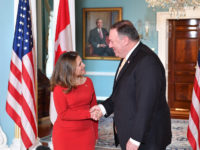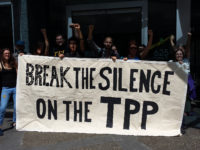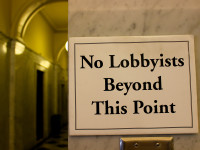As the NAFTA negotiations continue to inch along, one of the remaining contentious issues is the inclusion of a full cultural exception that would largely exclude the Canadian culture industries from the ambit of the agreement. The government has not been shy about speaking out against compromising on culture, noting the perceived risks of provisions that might permit foreign ownership of media organizations. Indeed, the culture issue has attracted considerable attention, with coverage pointing to media ownership rules and simultaneous substitution policies as hot button concerns. Yet as cultural groups cheer on the government’s insistence that cultural policy should be taken off the NAFTA table, the reality is that there remains plenty of room for compromise. This post focuses on three of the biggest issues: foreign ownership, simultaneous substitution, and the TPP culture exceptions.
Post Tagged with: "Culture"
Canada Releases Most of the Updated TPP Text…But the Side Letters Are Still Missing
The Canadian government and other TPP partners released the text of most of the CPTPP yesterday. The release contained few surprises as the TPP remains intact and a new annex identifies the suspended provisions. The list of suspended provisions was revealed several months ago and is particularly notable for the suspension of IP provisions such as copyright term extension, patent term adjustment, technological protection measures, biologics protection, and Internet safe harbour rules.
Canadian Copyright Diplomacy: My Appearance before the Senate Standing Committee on Foreign Affairs
Last week, I appeared before the Senate Standing Committee on Foreign Affairs as part of its study on the impact and utilization of culture and arts in foreign policy and diplomacy. I was asked to consider the impact of Canadian copyright in foreign diplomacy, leading to an interesting and engaging discussion that touched on everything from the changes to the IP provisions in the TPP to the legality of streaming services. My opening remarks, which emphasized the potential for Canada to engage in copyright diplomacy by serving as model for other countries, is posted below.
Canada Successfully Stands Up For Balanced IP and Canadian Culture in TPP Deal
While the NAFTA negotiations in Montreal were expected to be the lead trade story this week, the Trans Pacific Partnership talks in Tokyo have stolen the show with the remaining 11 countries reaching agreement on a deal that is likely to be signed in March. Canada faced intense criticism last year from some TPP partners (particularly Japan and Australia) over its demands to address concerns with the agreement. That sparked some Canadian business groups to quickly call on the government to simply cave in order to conclude a deal. Global Affairs Minister Chrystia Freeland and International Trade Minister François-Philippe Champagne rightly argued that capitulation is not a negotiating strategy and they now come away with an improved (albeit still flawed) agreement.











